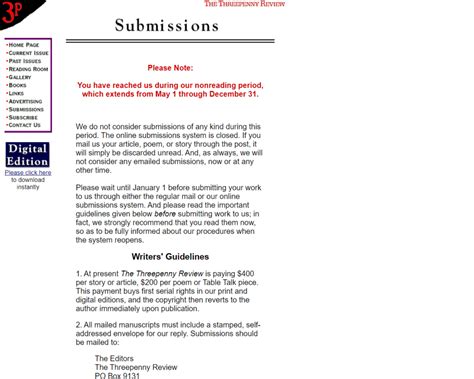The profound declaration made by Jesus in Marcos 9:23, “Everything is possible for one who believes,” unravels the intricate tapestry of healing, faith, and the human condition. This verse, nestled within the narrative of the father seeking healing for his afflicted son, offers a glimpse into the dynamics of spiritual healing and the role of belief in this process. To delve into the depths of this scripture and its implications for healing, we must first navigate the context in which it was spoken.
The Context of Faith and Healing
The episode begins with a father, desperate for a solution to his son’s tormented condition, approaching the disciples of Jesus. The son, beset by a spirit that renders him mute and prone to fits of violence against himself, had been the subject of the disciples’ failed attempts at exorcism. It is against this backdrop of perceived failure and deep-seated desperation that the father encounters Jesus. His plea, laced with a mixture of hope and doubt, sets the stage for Jesus’ impactful statement on belief and possibility.
Interpreting “Everything is Possible”
Jesus’ assertion that “everything is possible for one who believes” introduces a pivotal concept: the belief is not merely a passive acceptance of a fact but an active, living trust in God’s power and will. It suggests that the potential for healing, for transformation, and for the impossible to become possible, resides within the realm of the believer’s faith. This is not to imply that faith guarantees healing in every instance, as the outcomes of prayer are multifaceted and influenced by a myriad of divine and human factors. Instead, it underscores the profound connection between one’s belief system and the actualization of healing, whether physical, emotional, or spiritual.
The Dynamics of Healing and Faith
Faith as a Catalyst: Faith can act as a catalyst, not just for healing, but for fostering an environment where healing can occur. It involves a surrender to the divine will, an acknowledgment of one’s limitations, and a trust in a power greater than oneself.
The Role of Belief: Belief plays a critical role in the healing process. It is not merely the presence of belief but the depth and sincerity of that belief that can significantly influence outcomes. This belief is rooted in an understanding of God’s nature—loving, gracious, and powerful.
Beyond Physical Healing: While physical healing is a significant aspect of this discussion, the concept of healing extends far beyond the physical realm. Emotional, psychological, and spiritual healing are equally vital and are often intertwined with physical well-being. Faith can facilitate a holistic approach to healing, addressing the multifaceted needs of the individual.
Case Study: The Father’s Journey
The father’s journey towards healing for his son is a paradigmatic example of the evolution of faith and its impact on the healing process. Initially, the father approached Jesus with a mixture of hope and doubt, exemplified by his statement, “I do believe; help me overcome my unbelief!” This plea encapsulates the human condition—a desire to believe juxtaposed with the reality of doubt. Jesus’ response and the subsequent healing of the boy serve as a testament to the transformative power of faith, even in its imperfect forms.
Historical Evolution of Healing in Religious Contexts
The concept of healing within religious contexts, particularly in Christianity, has evolved significantly over centuries. From the early Church’s emphasis on spiritual healing as a manifestation of faith to the modern era’s holistic approach to wellness, the understanding and practice of healing have adapted to societal, theological, and scientific developments. This evolution underscores the dynamic nature of faith and its application to human needs, including healing.
Future Trends in Faith and Healing
As we look towards the future, the intersection of faith and healing is likely to be influenced by emerging trends in spirituality, advancements in medical science, and a growing recognition of the importance of mental health. The role of technology in facilitating access to religious and spiritual resources, as well as its impact on the perception and practice of faith, will also be significant. Moreover, there will be a continued emphasis on a holistic understanding of healing, one that integrates the physical, emotional, and spiritual dimensions of human experience.
Practical Application Guide
For those seeking to apply the principles of Marcos 9:23 to their lives, particularly in the context of healing, several steps can be taken:
Deepen Your Faith: Engage in practices that foster a deeper understanding and trust in God’s power and will, such as prayer, meditation, and the study of scripture.
Seek Community: Surround yourself with a community of believers who can support and uplift you in your journey towards healing.
Embrace Holism: Recognize the interconnectedness of physical, emotional, and spiritual well-being, and seek healing in all these areas.
Cultivate Patience and Persistence: Healing is often a process that requires time, effort, and perseverance. Cultivate these virtues as you navigate your journey towards wholeness.
Decision Framework for Seeking Healing
When considering the path towards healing, whether for oneself or a loved one, several factors come into play. A useful framework for making informed decisions includes:
Assessing the Need: Clearly defining the nature of the healing sought, whether physical, emotional, or spiritual.
Exploring Options: Investigating the various paths to healing available, including medical intervention, spiritual practices, and community support.
Evaluating Resources: Considering the resources at one’s disposal, including personal faith, community, and professional services.
Seeking Guidance: Consulting with spiritual leaders, healthcare professionals, and trusted advisors to inform one’s decision-making process.
Frequently Asked Questions
What role does faith play in the healing process according to Marcos 9:23?
+Faith, as highlighted in Marcos 9:23, acts as a foundational element for healing. It is the belief in God's power and will that can facilitate an environment conducive to healing. This belief is not just about the intellectual acceptance of a concept but an active trust that influences the actualization of healing.
How can one deepen their faith to seek healing as per the scripture?
+Deepening one's faith involves practices such as consistent prayer, the study of scripture, engagement in community worship, and a personal commitment to trust in God's goodness and power. These actions can strengthen one's belief and prepare the heart for the possibility of healing.
What does it mean to have a holistic approach to healing as inspired by Marcos 9:23?
+A holistic approach to healing recognizes the interconnectedness of the physical, emotional, and spiritual dimensions of human experience. It involves addressing the needs of the whole person—body, soul, and spirit—in the pursuit of wellness and healing. This approach can include medical treatment, psychological support, spiritual practices, and lifestyle changes that promote overall well-being.
How can community support contribute to the healing process as suggested by the father's experience in Marcos 9:23?
+Community support can play a vital role in the healing process by providing emotional support, practical help, and a sense of belonging. The father's decision to seek help from Jesus and his disciples, despite initial failures and doubts, illustrates the importance of reaching out for support. A supportive community can offer prayer, encouragement, and tangible assistance, all of which can foster an environment conducive to healing.
What are some practical steps one can take to apply the principles of Marcos 9:23 to their life, especially in seeking healing?
+Practical steps include deepening one's faith through prayer and scripture study, seeking support from a community of believers, adopting a holistic approach to wellness, and cultivating patience and persistence. Additionally, one can benefit from a decision framework that assesses the need for healing, explores available options, evaluates resources, and seeks guidance from spiritual and medical professionals.
In conclusion, Marcos 9:23 offers profound insights into the nature of healing, faith, and the human condition. Through its message, we are reminded of the significance of belief, the importance of a holistic approach to healing, and the value of community support. As we navigate our own journeys towards healing, whether physical, emotional, or spiritual, embracing these principles can lead us towards a path of transformation and wholeness.



